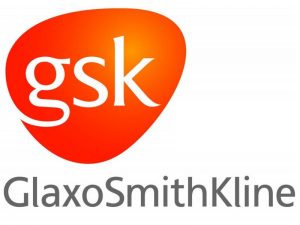GSK E-Mail Proves Pharma Industry Is Lobbying to Get E-Cigarettes Stringently Regulated
If there was ever any doubt that Big Pharma is doing everything in its power to stop increasingly popular electronic cigarettes from competing with their own smoking cessation products, this recently revealed e-mail written by a Glaxo Smith Kline vice-president to SANCO (the European Commission’s Directorate General for Health & Consumers) puts those doubts to rest.
 The email conversation between Sophie Crousse, the Brussels-based vice president of European public affairs for GSK’s consumer health-care division, and Dominik Schnichels, of SANCO, was made public last week through a freedom of information request made to the health and consumer affairs division of the European Commission, according to Bloomberg. It shows the pharmaceutical giant’s desire to see electronic cigarettes regulated as medicinal products, just like other nicotine replacement therapy products on the market. “We believe in responsible and proportionate regulation for all nicotine-containing products as medicinal products,” Crousse writes in an email dated October 30. “We believe in a single access system, without differentiation in clinical/regulatory and distribution advantages provided only to e-cigarettes that are not similarly provided to NCPs specifically intended to help people reduce and quit smoking. We believe devices that put nicotine in the human body need to be held to a single, consistent high standard of quality.”
The email conversation between Sophie Crousse, the Brussels-based vice president of European public affairs for GSK’s consumer health-care division, and Dominik Schnichels, of SANCO, was made public last week through a freedom of information request made to the health and consumer affairs division of the European Commission, according to Bloomberg. It shows the pharmaceutical giant’s desire to see electronic cigarettes regulated as medicinal products, just like other nicotine replacement therapy products on the market. “We believe in responsible and proportionate regulation for all nicotine-containing products as medicinal products,” Crousse writes in an email dated October 30. “We believe in a single access system, without differentiation in clinical/regulatory and distribution advantages provided only to e-cigarettes that are not similarly provided to NCPs specifically intended to help people reduce and quit smoking. We believe devices that put nicotine in the human body need to be held to a single, consistent high standard of quality.”
To better get GSK’s point across, Crousse also included a bullet-point list of reasons why e-cigarettes should be regulated as medicinal products and not as general products, as well as a number of reasons why the EU shouldn’t have a two-tier regulatory system. Glaxo Smith Kline believes only medicinal products legislation can ensure that the most robust safety and quality standards are applied to NCPs, that it’s the only one that ensures that there is a penalty system in place for manufacturers and marketing authorization holders that do not comply with quality and safety standards and that it provides the most appropriate labeling of the risks and benefits associated with NCP use.
Glaxo claims -cigarettes should not be classified as general products for several reasons, including that a simple notification system for marketing NCPs is not enough to confirm the safety and efficacy of these products and that General Products Legislation does not provide enough safeguards corresponding to the health risk category of nicotine and other chemical substances contained in electronic cigarettes. Furthermore, categorizing electronic cigarettes as “lifestyle products” excludes representation of their function as a smoking cessation aid, which leaves consumers unaware of the risks and benefits of switching from smoking to NCPs. “Allowing e-cigarettes to be marketed as tobacco/consumer products without any health claims would potentially open a gateway to nicotine addiction and encourage wider nicotine usage,” the email reads.
You can read the full list of arguments put together by Glaxo Smith Kline, here.
GSK also sought assurances that the revised tobacco products directive will apply to e-cigarettes already on the market and ensure a ban on advertising, according to an analysis of Article 18 of the TPD by the pharmaceutical company, which was also shared with two other major nicotine replacement therapy product manufacturers, Johnson&Johnson and Novartis. According to Caroline Almeida, a spokeswoman for the New Jersey-based Johnson&Johnson, her company is also “strongly in favor of” regulating all non-tobacco nicotine products, including e-cigarettes, as medicines. “This is the best way to ensure all non-tobacco nicotine products are advancing public health by means of effective, high-quality and safe products,” Almeida added.
In the published emails, Glaxo Smith Kline vice-president, Sophie Crousse admits to meeting with a certain Member of the European Parliament (whose name was not disclosed) after the ENVI vote in July, and sending her company’s analysis of the revised tobacco products directive‘s Article 18 to “all Member States representatives in Brussels” ahead of the Council meeting of October 31st.
Simon Steel, a spokesman for London-based Glaxo Smith Kline, confirmed the company’s position in an e-mail statement: “Safety is our number one priority and we support the smoker’s right to choose from a selection of products that have well established safety and efficacy profile in helping them quit smoking. All nicotine-containing products including e-cigarettes should be reviewed and regulated to the same standard of safety.”
It’s clear that Big Pharma has it in for electronic cigarettes, and after learning that e-cigarettes are severely affecting nicotine replacement therapy sales, I can say I understand their motives. That doesn’t mean they’re right in their judgement of the situation. Most of their arguments can easily be contested, and actually have been by reputed health scientists like Professor Riccardo Polosa, in his recent paper, Achieving Appropriate Regulations for Electronic Cigarettes“. Ultimately, it’s all about the money, but you probably knew that already…
















